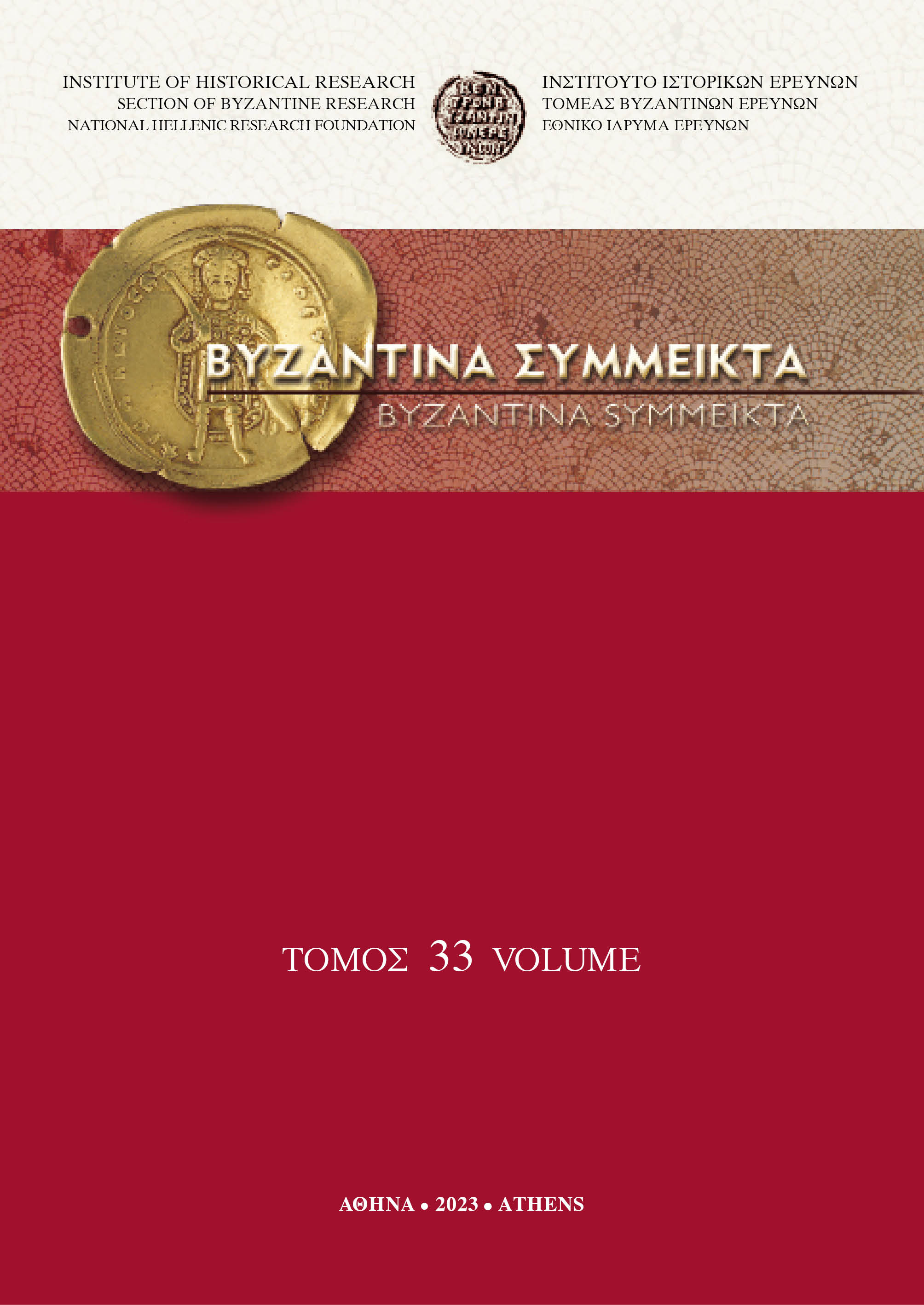Η ρητορική υπέρ της θρησκευτικής ανεκτικότητας: ο Λόγος 30 «πρὸς Θεοδόσιον τὸν βασιλέα ὑπὲρ τῶν ἱερῶν» του Λιβανίου.

Abstract
The present article discusses how the Antiochean orator Libanius endeavors to create through his rhetoric a more tolerant stance towards the already persecuted paganism and its cults in the later 4th century during the reign of emperor Theodosius I. By tracing and interpreting the rhetorical techniques which the orator uses in the Oration 30 (Pro Templis) so as to achieve his goal, the article also presents the religious unrest that broke out in the broader area of Coele Syria due to the gradual criminalization of the pagan cults and the plundering of pagan shrines and temples by highranking Christian officers and fervent monks. Libanius tends to become not only a pagan apologist, but he also seems to assume a role of defender of the social stability and order, by calling for religious neutrality (and subsequently tolerance) in the public sphere, which was dominated by the Nicene Christianity.
Article Details
- How to Cite
-
ΠΟΛΥΖΟΣ Σ. Σ. (2023). Η ρητορική υπέρ της θρησκευτικής ανεκτικότητας: ο Λόγος 30 «πρὸς Θεοδόσιον τὸν βασιλέα ὑπὲρ τῶν ἱερῶν» του Λιβανίου. Byzantina Symmeikta, 33, 103–135. https://doi.org/10.12681/byzsym.31657
- Issue
- BYZANTINA SYMMEIKTA 33
- Section
- Articles

This work is licensed under a Creative Commons Attribution-NonCommercial-ShareAlike 4.0 International License.
Copyright: The copyright for articles in this journal is retained by the author(s), with first publication rights granted to the journal. By virtue of their appearance in this open access journal, articles are free to use (with the exception of the non-granted right to make derivative works) with proper attribution for non-commercial uses (licence Creative Commons 4.0). NHRF retains the worldwide right to reproduce, display, distribute, and use articles published in BYZANTINA SYMMEIKTA in all formats and media, either separately or as part of collective works for the full term of copyright. This includes but is not limited to the right to publish articles in an issue of the Journal, copy and distribute individual reprints of the articles, authorize reproduction of articles in their entirety in another NHRF publication, and authorize reproduction and distribution of articles or abstracts thereof by means of computerized retrieval systems.


